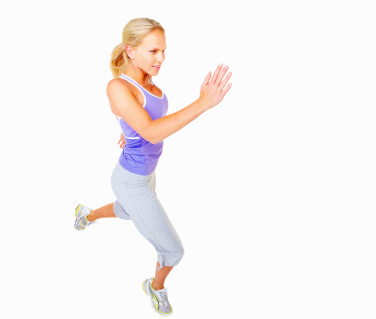The Runner's Diet: Fueling Your Performance with Smart Nutritional Choices
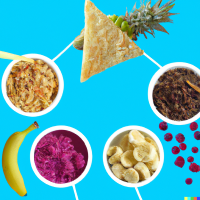
This page will provide you with a lot more information on the runner's diet. I'll break down the ins and outs of proper nutrition to keep you energized, healthy, and ready to conquer those miles!
Additionally, I'll cover off on one of the big pitfalls of running and extreme dieting, Relative Energy Deficiency in Sport.
Runner's Diet Key to Succes #1 – Understanding Your Macronutrients
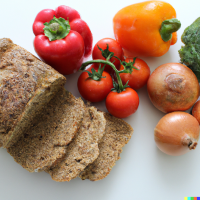
Carbohydrates
These are your body's primary source of energy, especially during high-intensity workouts. Opt for complex carbs like whole grains, fruits, and vegetables. They provide sustained energy and keep you feeling full. About 40-60% of your daily calorie intake should come from carbs.
When you are running for weight loss, this should be adjusted down. However keep in mind that as a runner, especially when you are doing higher mileage, you do need some carbohydrates for fuel!
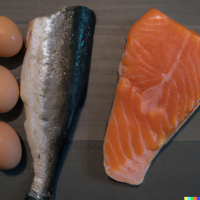
Proteins are the muscle-repairing superheroes. They help rebuild and maintain your muscles after those intense runs. Lean meats, fish, eggs, beans, and legumes are great sources. Aim for 15-30% of your daily calories from protein.
Fats
Don't fear fats – they're essential for overall health and energy. Just make sure you focus on healthy fats like avocados, nuts, seeds, and olive oil. These make up around 20-30% of your daily calorie intake.
Runner's Diet Key to Success #2 – Nutrient-Density - The Real MVP
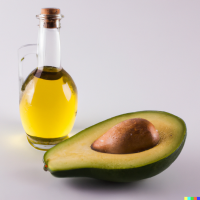
Runner's Diet Key to Success #3 – The Role of Sugary Goodies
High-sugar foods like energy gels, chews, and sports drinks might seem tempting, but I would recommend using them only strategically. During longer runs of 90 minute and more or races such as half marathons and marathons, they can be very helpful and provide a quick energy boost. I definitely use gels and chews during every Sunday long run.
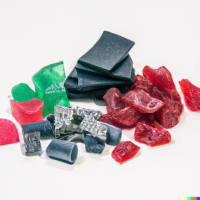
But keep in mind these are what I would like to call "empty calories". Sugary foods are full of calories, but simply don't have the nutritional value. That means that you may get a short boost of energy, but you will feel hungry afterwards, because your body is screaming for real nutrition. As Cookie Monster says nowadays, sugary foods are a "some days food"!
Runner's Diet Key to Success #4 - Pre- and Post-Run Nutrition: The Timing is Everything
Before a run, opt for easily digestible carbs to fuel your workout. A banana, whole-grain toast, or yoghurt can do the trick.
After your run, your body craves a mix of carbs and protein to replenish glycogen stores and aid muscle recovery. Chocolate milk, a protein smoothie, or a turkey sandwich are great choices.
Runner's Diet Key To Success #5 – Fueling Your Performance – Avoiding Undereating
If your goal is weight loss, understanding how your body responds to different foods is crucial. Experiment with your macronutrient ratios while staying within your calorie limits. Keep an eye on portion sizes and stay mindful of your body's hunger cues.
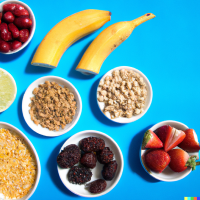
This often-overlooked condition occurs when the balance between the energy you're expending during exercise and the energy you're taking in through your diet is disrupted. The result? A cascade of detrimental effects on your performance and your health.
RED-S isn't just about the number on the scale; it goes much deeper. When your body isn't getting enough energy to meet its demands, it starts conserving energy by slowing down various bodily functions. Hormones get out of whack, affecting your menstrual cycle, bone health, and immune system. In essence, your body goes into survival mode, leaving you vulnerable to injuries, fatigue, and subpar performance.
So, when you are aiming for weight loss, you are particularly susceptible to RED-S. The temptation to cut calories significantly can have unintended consequences on your body's ability to recover and perform optimally. As you're already pushing your body through rigorous training, insufficient fuel can exacerbate the strain, leading to decreased endurance, frequent illnesses, and even stress fractures. The quest for a leaner physique shouldn't come at the cost of compromising your overall health and performance.
RED-S can be really impactful and derail a person's life and health journey. It has impacted elite athletes, as the weight loss initially may lead to an improvement in performance. This can then lead to the athlete pushing it further and further into an eating disorder and extreme calorie reduction. In the long-term this will always backfire.
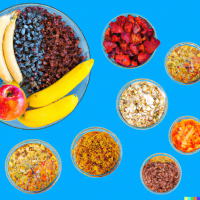
RED-S – My Own Experience
Now, RED-S is not easy to diagnose as it may present in a number of ways. But with what I know now about RED-S, I am pretty sure I have had my own experience with this in a period I used to refer to as "my running burn-out".
What happened was that in the midst of the 2020 pandemic I was preparing for a solo-marathon in November 2020. Then a number of things happened:
Now, the burn-out came about because the virtual challenge of having to cover 1,000km in 100 days pushed me to higher mileage levels, particulary in the weeks after the marathon in November and the ultra in December. After a marathon and an ultra you need to take it easy. But I didn't. I was back pounding the roads almost immediately.
Did food come into it? Now, I did not have an eating disorder, but the continuous training definitely led to an energy deficiency. I was driving my body into the ground. Maybe with taking in more food and more nutrient-dense food I could have staved off some of the impact. Clearly, I needed to take more of a rest and take care of my body. But I was so determined to complete the virtual challenge and participate in those ultra runs that I did not heed the warning signs of lack of energy and drop in mood.
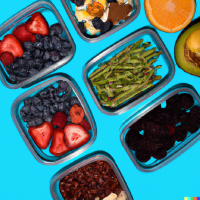
So, what happened? Well, after the ultra run in January I finally gave myself some time to recover. But when I started running again it took months, yes months, until I was able to get some speed back into my runs. I had depleted my body and it took a lot of time and patience to slowly repair.
I am telling you this to illustrate how easy it is to fall victim to RED-S. It can happen gradually, until suddenly you are in it and it takes a lot of time to recover from it. So, by all means, use running for your health, fitness and weight loss goals. But be aware of not structurally underfueling and take care of your body at all times!
Crafting Your Runner's Diet - Keep the Big Picture in Mind
Creating a balanced runner's diet means finding what works best for your body and training regimen. Strive for variety, include a rainbow of fruits and veggies, and hydrate properly.
Remember, your running journey is unique, and your nutrition should be too. By focusing on nutrient-dense foods, smart carb choices, and a balanced intake of protein and fats, you're giving yourself the best shot at reaching your running goals while staying healthy and strong.
So, lace up those running shoes and make your diet as intentional as your training – your body will thank you with every stride!
Home > Running for Weight Loss > Runner's Diet


